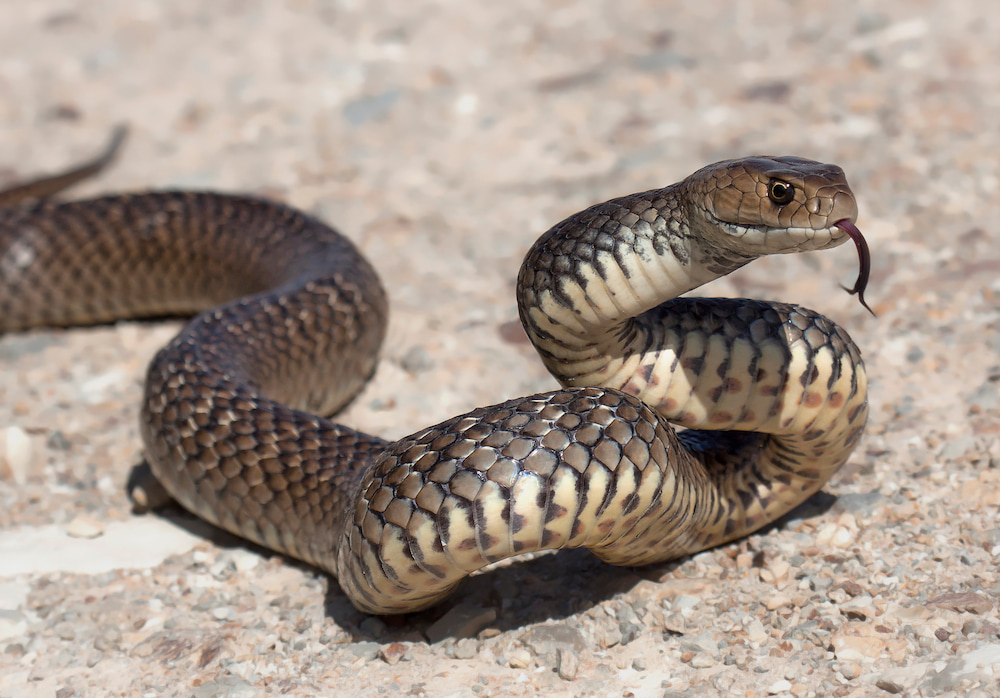Sociologist and snake ecologist Dr. Gavin Smith, Associate Professor at the Australian National University, and his team removed more than 200 serpents from Canberrans’ homes, gardens, schools, workplaces, and places of worship over this summer’s snake season.
But training snake handlers and running snake education programs in the ACT is hampered by legislation, Dr Smith believes.
In a petition sponsored by Labor MLA Dr Marisa Paterson, Dr Smith is calling on the ACT Government to review snake licensing arrangements and to allocate resources for snake catching and education. Otherwise, those services will not be sustainable, he believes.
“The ACT Government needs to listen to the community, and properly and sustainably fund snake removal and education work so we can improve conservation outcomes,” Dr Smith said.
“The situation is really concerning for the continuation of snake education and training in the ACT, as well as the delivery of snake catching services for our local community,” Dr Paterson said.
Unlike other jurisdictions, the ACT prohibits experienced individuals from keeping venomous snakes for educational and conservational purposes, Dr Smith said. Instead, snakes need to be brought into the ACT from other jurisdictions for training.
That, in Dr Smith’s opinion, poses unnecessary animal welfare issues and biosecurity risks to native snakes and to any captive ones where they are stored overnight. Wild eastern brown snakes, for instance, have very high rates of injury and generally do not respond well to being relocated from their home ranges.
Dr Smith believes the ACT should develop stringent licensing regulations so venomous snakes can be kept safely and responsibly. The licence might require a strong track record in education and conservation, and demonstrable competencies in handling and husbandry verified by experts.
Education, Dr Smith maintains, would ensure that Canberrans can safely co-exist with snakes. Snakes, he says, are stigmatised creatures, prone to being injured or attacked by people; and 40 per cent of residents surveyed fear snakes. However, encounters with snakes are increasing due to urbanisation and the loss of snakes’ natural habitats.
“Snakes are vital agents in our environment and culture,” Dr Smith said. “The ecological role they play – and economic benefits they generate in reducing pest rodent populations – is undervalued. I have been working with snakes for many years, and have observed the high levels of persecution they face, even as protected native wildlife. Their poor treatment results from how they are popularly perceived as dangerous and unpredictable animals. This is reinforced by the limited public understanding of snake behaviour and ecology. Moreover, every year, as our bush capital expands its urban footprint further into naturally occurring habitat, I am being asked to move more of these animals further away from their home ranges. And this activity is having significant impacts on their welfare and on local ecosystems.
“What is urgently needed are education programs for different members of our community, and more familiarisation with snakes as urban wildlife that we need to better understand.”
Moreover, a dedicated snake catching business in the bush capital is not viable, since snake movement activity is seasonal. This means there are not enough snake catchers to meet demand. Instead of the ‘pay as you use model’, Dr Smith proposes that the government make snake catching a contracted public service (as in the Northern Territory). Ninety-one per cent of local residents support this, according to a recent survey.
“As a community, we strongly value the various work that Canberra’s snake catchers and educators perform,” Dr Paterson said, “and it’s time that our laws reflected best-practice in the welfare, care, and protection of snakes – which they currently do not.”
However, environment minister Rebecca Vassarotti (ACT Greens) opposed the proposal, citing potential risks to animal welfare standards in the ACT.
“The ACT Government received advice from the Environment, Planning and Sustainable Development Directorate and the ACT Conservator that changes to current regulation would pose significant animal welfare risks that could not be overlooked,” Ms Vassarotti said.
“Dr Paterson’s suggested alterations would permit snakes to be owned indefinitely – removing them from their natural environment and making them endure prolonged periods of isolation.”
(Are snakes sociable creatures?)
“As a steward of Canberra’s stringent animal welfare laws,” Ms Vassarotti continued, “I hold a deep sense of responsibility towards safeguarding our native wildlife, and as such, I cannot in good conscience support this proposal.
“My dedication to ensuring the welfare of native snakes remains, and the Government is committed to engaging with snake handlers in ongoing dialogues to ascertain the most humane and pragmatic approach to snake care in the ACT.”
Ms Vassarotti said that the ACT Government was already educating the public on safe encounters with snakes. This information is available through the ACT Government website.



